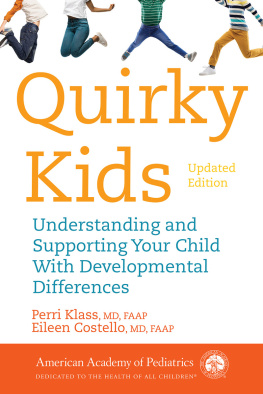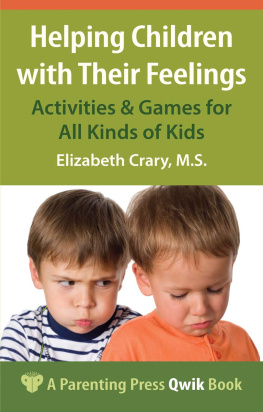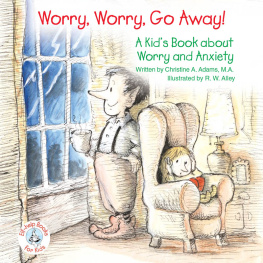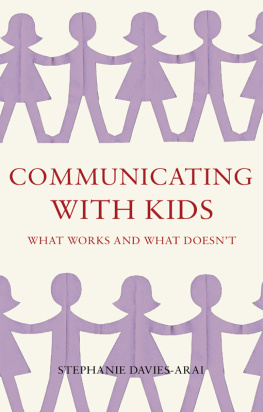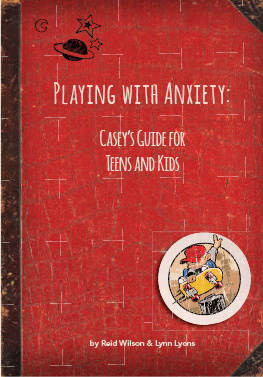Perri Klass - Quirky Kids: Understanding and Helping Your Child Who Doesnt Fit In--When to Worry and When Not to Worry
Here you can read online Perri Klass - Quirky Kids: Understanding and Helping Your Child Who Doesnt Fit In--When to Worry and When Not to Worry full text of the book (entire story) in english for free. Download pdf and epub, get meaning, cover and reviews about this ebook. year: 2007, publisher: Random House Publishing Group, genre: Children. Description of the work, (preface) as well as reviews are available. Best literature library LitArk.com created for fans of good reading and offers a wide selection of genres:
Romance novel
Science fiction
Adventure
Detective
Science
History
Home and family
Prose
Art
Politics
Computer
Non-fiction
Religion
Business
Children
Humor
Choose a favorite category and find really read worthwhile books. Enjoy immersion in the world of imagination, feel the emotions of the characters or learn something new for yourself, make an fascinating discovery.

- Book:Quirky Kids: Understanding and Helping Your Child Who Doesnt Fit In--When to Worry and When Not to Worry
- Author:
- Publisher:Random House Publishing Group
- Genre:
- Year:2007
- Rating:3 / 5
- Favourites:Add to favourites
- Your mark:
Quirky Kids: Understanding and Helping Your Child Who Doesnt Fit In--When to Worry and When Not to Worry: summary, description and annotation
We offer to read an annotation, description, summary or preface (depends on what the author of the book "Quirky Kids: Understanding and Helping Your Child Who Doesnt Fit In--When to Worry and When Not to Worry" wrote himself). If you haven't found the necessary information about the book — write in the comments, we will try to find it.
The toddler whose tantrums scare all the other kids on the playground . . . The three-year-old who ignores all his toys but seems passionately attached to the vacuum cleaner . . . The fourth-grade girl who never gets invited to a birthday party because classmates think shes weird . . . The geek who is terrific at math, but is failing every other subject. Quirky children are different from other kids in ways that they--and their parents and teachers--have a hard time understanding or explaining. Straddling the line between eccentric and developmentally impaired, quirky children present challenges that standard parenting books fail to address. Now, in Quirky Kids, nationally known writer/pediatrician Perri Klass and her colleague Eileen Costello, a seasoned pediatrician with a special interest in child development, finally provide the expert guidance and in-depth research that families with quirky children so desperately need.
A generation ago, such children were called odd ducks or worse. But nowadays, they are often assigned medical, psychiatric, or neurological diagnoses. The diagnoses often overlap or shift, but the labels can be frightening. Klass and Costello illuminate the confusing list of terms applied to quirky children these days--nonverbal learning disability, sensory integration disorder, obsessive-compulsive behavior, autistic spectrum disorder, pervasive developmental disorder, Aspergers syndrome--and explain how to assess what exactly each diagnosis means and how to use it to help a child most effectively.
Quirky Kids takes you through the stages of a childs life, helping to smooth the way at home, at school, even on the playground. How do you make it through mealtime, when emotions often erupt? How do you help the childs siblings understand whats going on? Is it better to mainstream the child or seek a special education program? How can you make a school more welcoming and flexible for a quirky child? How do you help your child deal with social exclusion, name-calling, and bullying?
Choosing the right therapy for quirky children is especially difficult, because their problems fall outside traditional medical categories. Coping strategies might include martial arts or horseback riding, or speech and occupational therapies. Klass and Costello cover all the options, as well as offer a thorough consideration of the available medications, how they work, and whether medication is the best choice for your child.
Drs. Klass and Costello firmly believe that the ideal way to help our quirky kids is to understand and embrace the qualities that make them exceptionally interesting and lovable. Written with upbeat clarity and informed insight, their book is a comprehensive guide to loving, living with, and enjoying these wonderful if challenging children.
From the Hardcover edition.
Perri Klass: author's other books
Who wrote Quirky Kids: Understanding and Helping Your Child Who Doesnt Fit In--When to Worry and When Not to Worry? Find out the surname, the name of the author of the book and a list of all author's works by series.


